In the debate about the rollout of 5G networks, critics and supporters of Chinese technology clash irreconcilably. Hardly any other company name is as controversial in this context as Huawei. The Chinese company is the global leader in 5G technology and also cheaper than its European competitors. The problem: concerns about security. Huawei appeases, but critics point to the fact that the CCP leadership always has the last word in China.
Another common argument is that China would never open its networks to European providers. Our author Frank Sieren refutes this claim and raises the question of reciprocity in the 5G sector: China opens up while Europe isolates itself. But the question of transparency also plays a role.
Our second analysis looks at how good China’s universities truly are. In the renowned Nature Index, China has knocked the United States off the top spot for the first time. But Marcel Grzanna notes that the plethora of scientific papers and economic innovations can easily mislead.
If other key factors are considered, a completely different picture emerges. Sun Yat-sen University, for example, makes it into the top 10 when it comes to producing scientific papers, but in the far more comprehensive quality ranking, the university from Guangzhou only ends up in 267th place.

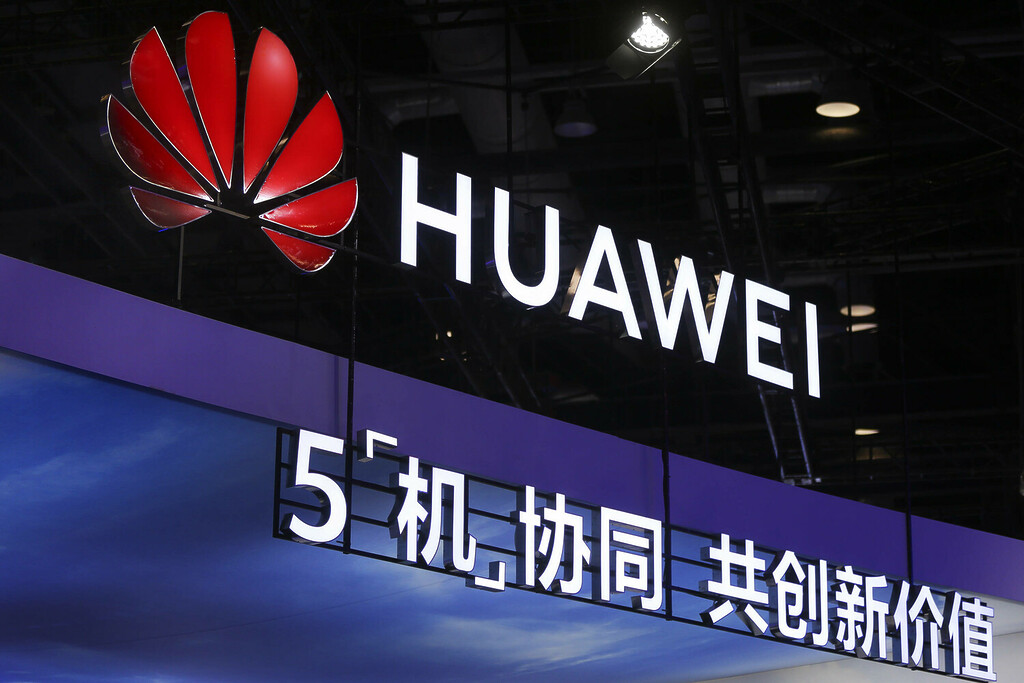
It is a decision that will generate plenty of debate at the Shanghai Mobile World Congress (MWC), Asia’s biggest telecommunications event, which begins on Wednesday: In its latest round of bidding, state-owned telecoms group China Mobile has awarded 16 percent of its 5G RAN network in the 2.5 GHz and 4.9 GHz frequency range to Ericsson and Finnish competitor Nokia.
For both companies, this means a doubling of their total market share on the Chinese market. This could leave Ericsson and Nokia with more base stations installed in China than in Europe.
Ericsson can also hope for shares in the 5G network of private companies, where sensitive data also flows. In addition, the Swedes are building a 5G early warning system for natural disaster prevention in ten Chinese cities in cooperation with China Mobile Zhejiang – another security-relevant area.
The opening of the Chinese networks for European providers is considered a surprise in the sector. After all, the Swedish government had excluded the Chinese provider Huawei from the nationwide 5G network roll-out in 2020. By 2025, all products from Huawei and ZTE will no longer be barred from Sweden’s 5G network – due to security concerns, according to reports. Huawei sued against the exclusion in Stockholm and lost the case in June 2022. However, arbitration under international trade law is still ongoing. A ruling is not expected before 2024.
The EU also advises its members to exclude Huawei from the European 5G network. The EU Commission has already banned Huawei from its networks. In the meantime, China is mocking these developments. To be sure, most countries are not complying – including the four economically largest: Germany, France, Italy and Spain.
The industry had therefore expected China to exclude Nokia and Ericsson in turn. Some politicians believed anyway that China’s 5G market was completely closed off to the West, including Friedrich Merz, chair of the German Christian Democratic Union (CDU). “In the Huawei debate, it has been lost that no European telecommunications company has market access to China,” Merz said.
Even Norbert Roettgen, in his role as Chair of the German Bundestag’s Committee on Foreign Affairs, was certain: “Beijing wouldn’t even consider opening its 5G network to foreign providers.” In the meantime, as an ordinary member of parliament, he advocates a ban on Huawei’s 5G. However, such statements are incorrect.
The accusation in Germany, as well as in many other EU countries, is that Chinese companies such as Huawei and ZTE would pose a threat to national security. As a result, Germany’s authorities are currently intensively examining potential security risks.
The German population is quite ambivalent about China. A Civey survey conducted in spring 2023 on behalf of Table.Media asked: “Does China pose a threat to Germany’s security?” 18 percent answered with a clear no and 23 percent with a clear yes. The rest are undecided.
When explicitly asked about Huawei and the security of 5G networks, a clear 60 percent majority believe it would be better to remove Huawei components from German networks.
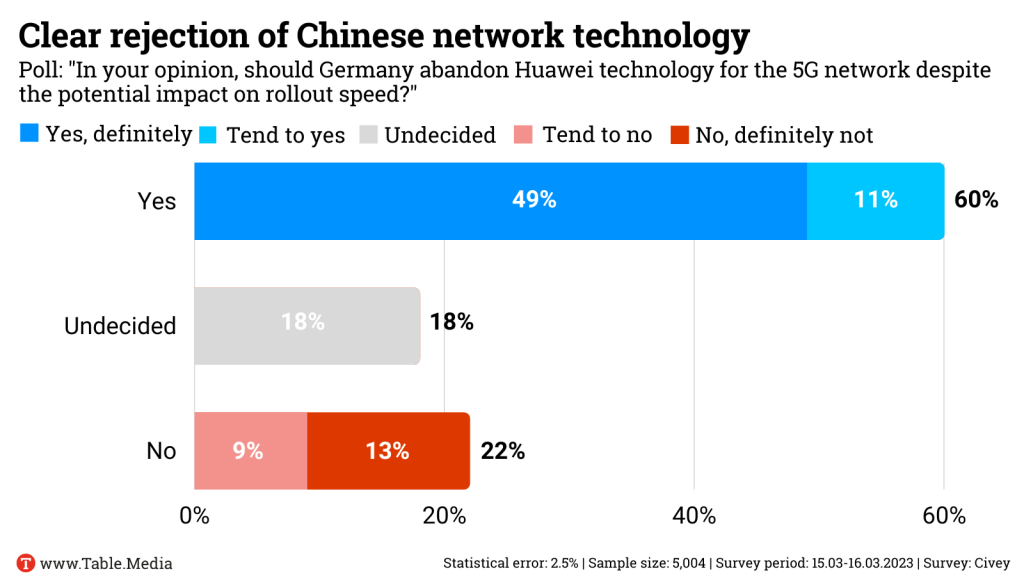
European telecommunications operators apparently see far fewer security risks than politicians and the public. “Remote access for manufacturing companies is not possible,” Deutsche Telekom, for example, recently stated – thus disagreeing with Huawei opponent Roettgen, for instance.
The reason for Europe’s resistance could be different, namely that Ericsson and Nokia are increasingly on the defensive despite the opening of the Chinese market. In the area of 5G, China represents 60 percent of the world market – and it is predominantly in the hands of Chinese companies.
So it could be the case that China opens up its 6G market further, but the Europeans are not competitive at all. China already leads the world with a share of more than 40 percent of 6G patents.
As a result, Ericsson and Nokia already have to carry out most of their R&D in Shenzhen in southern China, partly in cooperation with state-owned Chinese partners. For cost reasons, the hardware has long been produced in China anyway – including hardware meant for Europe. European telecom equipment suppliers are likely to find themselves in a similar predicament to the German car industry.
EU countries unwilling to use Huawei because of security concerns are increasingly faced with the question: How much loss of economic and innovative power is increased security worth, especially with EU inflation at eight percent and growth at just one percent?
A study by Oxford Economics concludes: Excluding Huawei would increase investment costs by more than ten billion euros. And the damage that would result from low innovation would be many times higher. According to calculations by Accenture, the EU will generate one trillion euros more in economic output between 2021 and 2025 from 5G development alone.
This is one of the reasons why German Chancellor Olaf Scholz (SPD) made it clear in March that the question of whether Chinese high-tech components should be banned from critical infrastructure networks “cannot be answered in abstract and general terms.” It would have to be examined on a case-by-case basis, which would involve “nothing more than the implementation of existing laws.” Scholz does not consider it necessary to tighten the regulations, as the Greens and the Christian Democrats are demanding.
A spokeswoman for the German Ministry of the Interior recently told the newspaper Handelsblatt: “There are indications that their continued use could likely affect the public order or security of the Federal Republic.” But according to the current legal situation, three ministries and the Chancellery would have to vote “in unison” to exclude Huawei. That is unlikely.
One of the main arguments by the Chancellery in favor of Huawei is that the company was the first telecommunications supplier ever to disclose its source codes to the authorities. In its Security Innovation Labs in Bonn and Shenzhen, the company offers uniquely in-depth access to its technology and research compared to its competitors, the Federal Office for Information Security states.
Ericsson and Nokia, on the other hand, stubbornly refuse to disclose their source codes to this day. An EU law forcing everyone to disclose their source codes would actually benefit security.
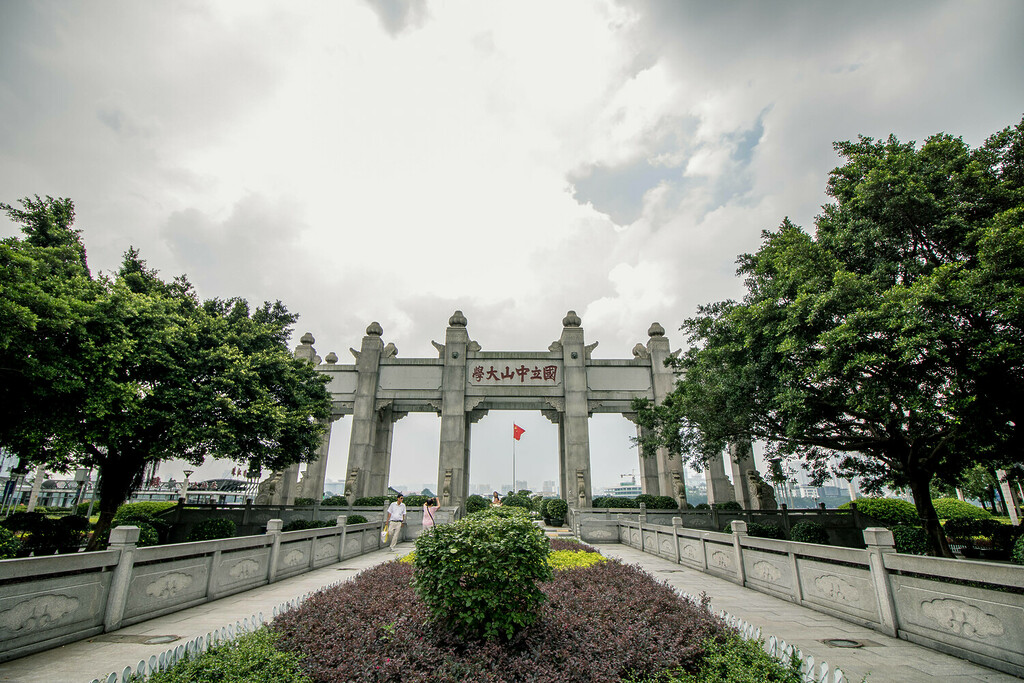
A look at the raw numbers must have delighted China’s party leader Xi Jinping. For the first time, the People’s Republic has overtaken the United States as number one in the publication of research papers in scientific journals. The Nature Index, published since 2014, records a 21 percent increase in publications to which Chinese scientists contributed last year. In contrast, the number of comparable publications with the collaboration of American researchers fell significantly.
This may be a milestone victory for the Communist Party on the way to its proclaimed goal of becoming the world’s leading scientific power. But it should not be too blinded by the numbers, because the index says nothing about the quality of scientific work. “Nature Index metrics alone should not be used to assess institutions or individuals. We encourage users to combine the open source Nature Index data with other information, measures and tools,” the authors write.
Alicia Hennig from the Dresden University of Technology, who herself spent years researching and teaching in Shenzhen and Nanjing, therefore looks at the numbers with caution. “The index measures the number of publications, but we learn nothing about the quality of the work. That’s why I’m not impressed by the quantity alone,” says Hennig. The decisive criterion, namely which influence a scientific paper has, remains hidden. “The decisive question is how a paper is received and then also cited in order to be able to assess its actual contribution to science,” says Hennig.
Chinese universities have been working consistently for years towards the goal of increasing their scientific output by offering financial incentives or linking publication quotas to tenure. These measures are bearing fruit. In the quantitative measurement, seven Chinese universities have ranked in the top 10. At the top of the list is the US university Harvard.
The Nature Index, therefore, acknowledges “that multiple factors must be considered when benchmarking research quality and institutional performance.” The results of scientific research include not only journal articles, but also data, software, intellectual property and qualified young scientists.
The QS University Ranking, which compares the quality of institutions, looks correspondingly different. There, universities are evaluated on six indicators to capture their performance effectively. These also include the reputation of universities and employers, the ratio between teaching staff and students.
Here, too, China has gained a lot of ground. But it is also clear that science and research in the People’s Republic are not yet candidates for global leadership. Peking University and Tsinghua University are ranked 12th and 14th, respectively, while they rank fifth and sixth in the Nature Index. Other Chinese universities are even further behind. The number two in the Nature Index, the University of Science and Technology in Hefei, is only 94th in the QS ranking, Nanjing University is 133rd and Sun Yat-sen University in Guangzhou and Shenzhen is only 267th.
A look at Chinese innovations also provides a parallel to the necessary differentiation in quantitative rankings. Here, too, China has made enormous quantitative gains. In the Global Innovation Index (GII) of the World Intellectual Property Organization (WIPO), China currently ranks 11th out of 132 economies.
While a study by the Chinese European International Business School (CEIBS) in Shanghai found that the quality of innovations in the country has indeed increased significantly and more genuine invention patents have been registered, the share of design or product patents has declined. But the research team also noticed that the quality of patents has decreased in relation to research and development (R&D) spending in companies.
“We found that the use of investment in research and development in China is inefficient. China’s return on investment per yuan spent on R&D was lower compared to other countries such as the US,” the three authors write in their study.
However, the CEIBS researchers suspect economic reasons behind this development. They say the Chinese economy is in a transitional phase and R&D efforts in Chinese companies have primarily focused on gradual innovation to reduce investment uncertainties.
The fact that the importance of science, research and development has changed drastically in China in recent years is nevertheless proven by the figures of the Nature Index as well as the patent census. However, whether China will become the global leader depends on numerous factors that money alone cannot control. Political developments play an equally important role. As the world’s leading scientific power, China would not only have to churn out results, but also attract students of all disciplines from all over the world. This attraction has tended to decline for some years now.
The Czech Parliament’s Committee on Foreign Policy has called for a closer examination of the EU country’s China policy. Relations with Indo-Pacific states, including Taiwan, should also be strengthened, the committee stressed in a resolution. Among others, the platform ChinaObservers reported on this on Monday.
Czech foreign policy officials also expressed concern about the treatment of minorities in Tibet and Xinjiang. They also called for ending the EU state’s extradition treaty with Hong Kong. Under the new government of Petr Fiala, Prague has increasingly turned away from Beijing. Czech President Petr Pavel, on the other hand, has spoken out in favor of a closer relationship with Taiwan. ari
Taiwan’s military is equipping several reconnaissance drones with weapons firepower. This was reported by the news agency CNA. According to the report, 32 drones have already been armed and delivered by the National Chung-Shan Institute of Science and Technology. 18 more are to follow. However, only some of them will be equipped with an ammunition system. Another part will receive laser targeting systems, CNA reports citing a military source.
The arming of drones is a reaction to the growing tensions with the People’s Republic of China. Most recently, its annual military drill had focused mainly on measures to counter a blockade. Drills included the practice of precision attacks.
The laser system is said to allow the Taiwanese military to target and transmit coordinates accurately. The ammunition system consists of a 60 mm mortar with eight rounds and is capable of defending itself against attacks. grz

The US Department of Justice has filed criminal charges against four Chinese chemical companies and eight individuals. They are accused of illegally trafficking the chemicals used to manufacture fentanyl. Fentanyl is a highly addictive painkiller. Heavy use of fentanyl has plunged the US into a deep opioid crisis. Fentanyl overdose is a common cause of death in the US.
A study by the US Drug Enforcement Administration (DEA) found China to be the largest supplier of illegally manufactured fentanyl or related substances. The accusation is that China is flooding the US market with the drug while Beijing looks the other way. Last Friday’s charges are the first US attempt to prosecute a Chinese company involved in the manufacturing process of the painkiller.
China reacted outraged to the matter. The foreign ministry in Beijing demanded that no pretenses be constructed around fentanyl. Apparently, the US would only seek to sanction and prosecute Chinese companies and citizens. Instead, China demands the immediate release of those “illegally arrested.” rad
China’s participation in the Comprehensive and Progressive Agreement for Trans-Pacific Partnership (CPTPP) remains an option. On Monday, Minister of Commerce Wang Wentao met with his New Zealand counterpart Damien O’Connor in Beijing to discuss China’s possible integration into the agreement. O’Connor, who is part of a trade delegation that will remain in the People’s Republic until the end of the week, confirmed “good talks.”
The CPTPP is the successor construct to the failed Trans-Pacific Partnership (TPP), which never came into force after the United States pulled out. The CPTTP countries then negotiated and signed a free trade agreement without US participation.
Its members include New Zealand, Australia, Brunei, Canada, Chile, Japan, Malaysia, Mexico, Peru, Singapore and Vietnam. Most recently, the United Kingdom announced it would be the first European country to join CPTTP.
It represents more than 13 percent of global economic output. China signaled its interest from the beginning, but did not give any time frame for a possible accession. Taiwan’s accession, however, has so far failed due to China’s resistance. grz

Wang Huiwen has resigned from his executive positions at Chinese food supplier Meituan for “personal health reasons.” The co-founder of the Beijing-based company most recently served as a non-executive director, board member and authorized representative. Meituan made headlines with its plan to use drones to deliver food.
Wang’s resignation at Meituan exemplifies a trend. In recent weeks, a number of big tech companies have reshuffled their executive levels: For example, 41-year-old chairman Yu Yui resigned from JD Logistics; Daniel Zhang Yong gave up his functions as chairman and CEO of Alibaba Group Holding last week.
In most cases, health reasons are officially cited. Insiders suspect behind this the alignment with new growth strategies after the COVID-19 pandemic. rad
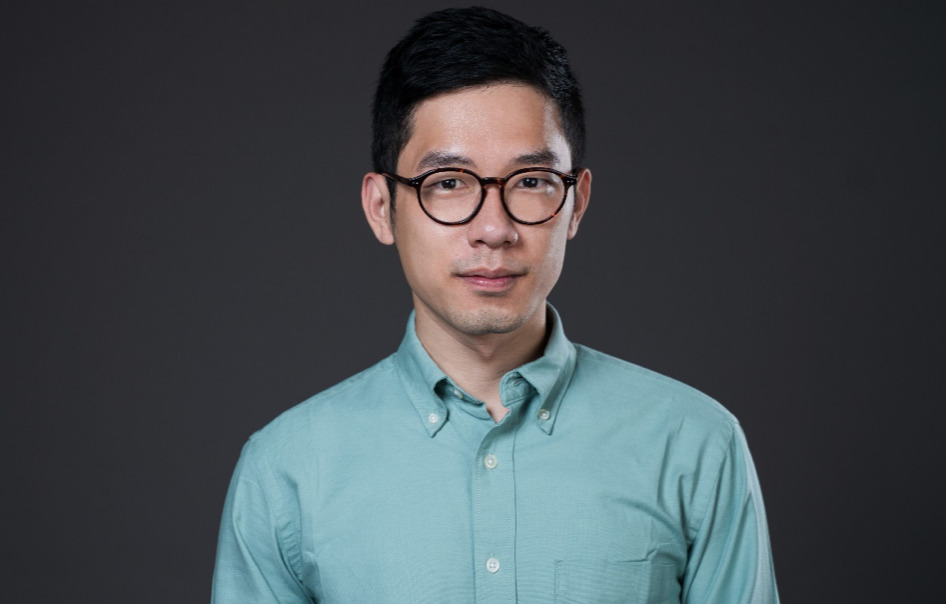
Nathan Law achieved various milestones early in his life. He was elected the youngest-ever member of the Hong Kong Parliament and later nominated for the Nobel Peace Prize. Time Magazine ranked him among the 100 most influential people in the world.
Nevertheless, the 29-year-old is restless: “I can only really rest when our struggle has reached its goal,” he says. Law is fighting relentlessly for a democratic and self-determined Hong Kong. A Hong Kong that was first promised to him and his generation by the Chinese government when the former British colony was returned to China in 1997 and then stolen years later.
His struggle against the Chinese Communist Party and its gradual conquest of Hong Kong has been ongoing for almost ten years. In 2014, the then-student, together with fellow students Joshua Wong and Alex Chow, became one of the leading faces of the Hong Kong Umbrella Movement. With thousands of other students, they occupied entire streets of downtown Hong Kong – in protest against the de-democratization imposed by Beijing.
The protests at the time were not helpful. “We had to find another way to make our voices heard, so we founded a party,” says Law. This student party was called Demosisto, whose name roughly translates as the will of the people. In 2016, Law became a member of the Hong Kong parliament. At his public swearing-in ceremony, he deviated from the regular procedure and spoke before parliament in favor of open democracy and against paternalism by the Communist Party.
“Since the 2014 protests, I have been a thorn in Beijing’s side. They used my words at the swearing-in ceremony to remove me from office as a deputy a year later.” The government claimed that the swearing-in ceremony had not met the required standards and was, therefore, not legally valid. A short time later, the Chinese government charged him for his involvement in the Umbrella Movement protests.
In August 2017, he was sentenced to eight months in prison for this. He spent three months of that in a Hong Kong prison until he was able to appeal the sentence and won. “Others would have gone into hiding first, but for me, that was out of the question.” For Law, it was straight back to the political stage until the situation came to a head again two years later.
“With the new extradition law in 2019, everything has changed again in Hong Kong,” Law says. For months, Hong Kong students and residents clashed with police in the streets during protests. Eventually, the city government started a public manhunt for Law at Beijing’s behest. “From that point on, I realized that I couldn’t go on like this in Hong Kong. For me, it was time to leave.”
Today, Nathan Law lives in exile in London. Even there, his daily routine involves fighting back against the dictatorship from Beijing. He meets politicians and interest groups and repeatedly puts the fight for Hong Kong’s democracy on the agenda. Intimidation attempts by the Chinese government have so far not reached him here in England. His parents also live largely undisturbed by the Chinese government in Hong Kong.
Nathan Law would like to see them again, but a safe return to Hong Kong is practically out of the question for him as long as Beijing is in charge in the city. That is why he is settling down in the UK for the long run: “I came to London to tell people the truth about China. And I will not go home until I can return to a democracy.” Gregor Scheu
Hu Wei becomes the new CEO of JD Logistics. He succeeds Yu Rui, who is stepping down from his role as managing director, CEO and authorized representative due to health reasons. Hu Wei was previously CEO of JD.com’s product development division.
Is something changing in your organization? Let us know at heads@table.media!
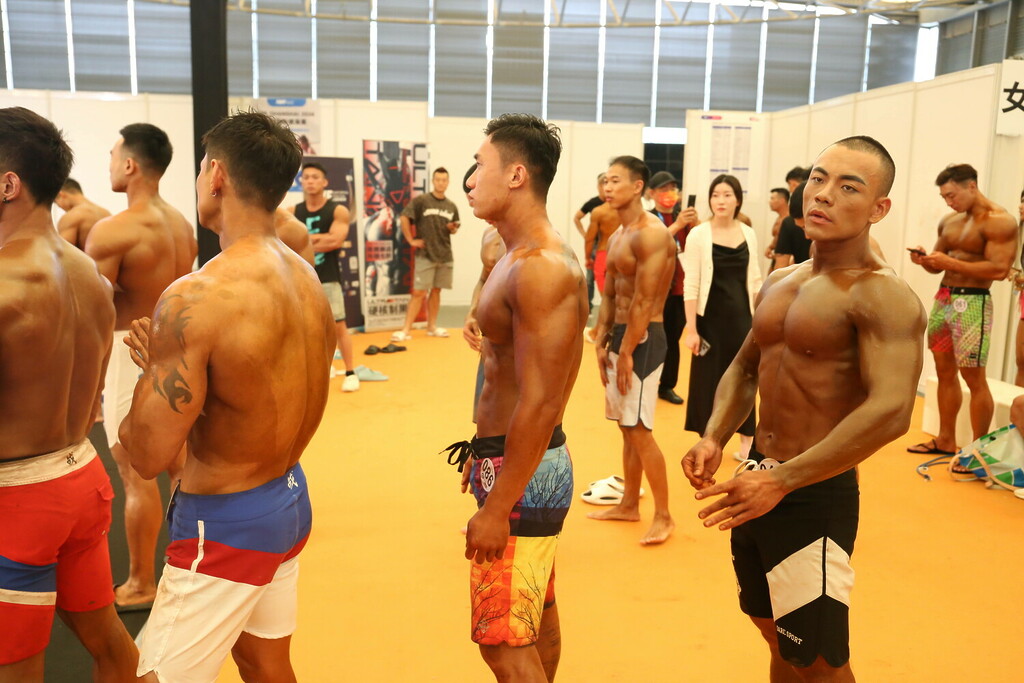
Ready for the gun show: The fitness expo in Shanghai is the largest of its kind in Asia. The tenth installment ended yesterday. China’s sports and fitness market has seen exponential growth in recent years, with the number of gyms rising from around 500 in 2001 to more than 50,000 by the end of 2020. Two-thirds of the population over the age of seven engage in fitness activities at least once a week.
In the debate about the rollout of 5G networks, critics and supporters of Chinese technology clash irreconcilably. Hardly any other company name is as controversial in this context as Huawei. The Chinese company is the global leader in 5G technology and also cheaper than its European competitors. The problem: concerns about security. Huawei appeases, but critics point to the fact that the CCP leadership always has the last word in China.
Another common argument is that China would never open its networks to European providers. Our author Frank Sieren refutes this claim and raises the question of reciprocity in the 5G sector: China opens up while Europe isolates itself. But the question of transparency also plays a role.
Our second analysis looks at how good China’s universities truly are. In the renowned Nature Index, China has knocked the United States off the top spot for the first time. But Marcel Grzanna notes that the plethora of scientific papers and economic innovations can easily mislead.
If other key factors are considered, a completely different picture emerges. Sun Yat-sen University, for example, makes it into the top 10 when it comes to producing scientific papers, but in the far more comprehensive quality ranking, the university from Guangzhou only ends up in 267th place.


It is a decision that will generate plenty of debate at the Shanghai Mobile World Congress (MWC), Asia’s biggest telecommunications event, which begins on Wednesday: In its latest round of bidding, state-owned telecoms group China Mobile has awarded 16 percent of its 5G RAN network in the 2.5 GHz and 4.9 GHz frequency range to Ericsson and Finnish competitor Nokia.
For both companies, this means a doubling of their total market share on the Chinese market. This could leave Ericsson and Nokia with more base stations installed in China than in Europe.
Ericsson can also hope for shares in the 5G network of private companies, where sensitive data also flows. In addition, the Swedes are building a 5G early warning system for natural disaster prevention in ten Chinese cities in cooperation with China Mobile Zhejiang – another security-relevant area.
The opening of the Chinese networks for European providers is considered a surprise in the sector. After all, the Swedish government had excluded the Chinese provider Huawei from the nationwide 5G network roll-out in 2020. By 2025, all products from Huawei and ZTE will no longer be barred from Sweden’s 5G network – due to security concerns, according to reports. Huawei sued against the exclusion in Stockholm and lost the case in June 2022. However, arbitration under international trade law is still ongoing. A ruling is not expected before 2024.
The EU also advises its members to exclude Huawei from the European 5G network. The EU Commission has already banned Huawei from its networks. In the meantime, China is mocking these developments. To be sure, most countries are not complying – including the four economically largest: Germany, France, Italy and Spain.
The industry had therefore expected China to exclude Nokia and Ericsson in turn. Some politicians believed anyway that China’s 5G market was completely closed off to the West, including Friedrich Merz, chair of the German Christian Democratic Union (CDU). “In the Huawei debate, it has been lost that no European telecommunications company has market access to China,” Merz said.
Even Norbert Roettgen, in his role as Chair of the German Bundestag’s Committee on Foreign Affairs, was certain: “Beijing wouldn’t even consider opening its 5G network to foreign providers.” In the meantime, as an ordinary member of parliament, he advocates a ban on Huawei’s 5G. However, such statements are incorrect.
The accusation in Germany, as well as in many other EU countries, is that Chinese companies such as Huawei and ZTE would pose a threat to national security. As a result, Germany’s authorities are currently intensively examining potential security risks.
The German population is quite ambivalent about China. A Civey survey conducted in spring 2023 on behalf of Table.Media asked: “Does China pose a threat to Germany’s security?” 18 percent answered with a clear no and 23 percent with a clear yes. The rest are undecided.
When explicitly asked about Huawei and the security of 5G networks, a clear 60 percent majority believe it would be better to remove Huawei components from German networks.

European telecommunications operators apparently see far fewer security risks than politicians and the public. “Remote access for manufacturing companies is not possible,” Deutsche Telekom, for example, recently stated – thus disagreeing with Huawei opponent Roettgen, for instance.
The reason for Europe’s resistance could be different, namely that Ericsson and Nokia are increasingly on the defensive despite the opening of the Chinese market. In the area of 5G, China represents 60 percent of the world market – and it is predominantly in the hands of Chinese companies.
So it could be the case that China opens up its 6G market further, but the Europeans are not competitive at all. China already leads the world with a share of more than 40 percent of 6G patents.
As a result, Ericsson and Nokia already have to carry out most of their R&D in Shenzhen in southern China, partly in cooperation with state-owned Chinese partners. For cost reasons, the hardware has long been produced in China anyway – including hardware meant for Europe. European telecom equipment suppliers are likely to find themselves in a similar predicament to the German car industry.
EU countries unwilling to use Huawei because of security concerns are increasingly faced with the question: How much loss of economic and innovative power is increased security worth, especially with EU inflation at eight percent and growth at just one percent?
A study by Oxford Economics concludes: Excluding Huawei would increase investment costs by more than ten billion euros. And the damage that would result from low innovation would be many times higher. According to calculations by Accenture, the EU will generate one trillion euros more in economic output between 2021 and 2025 from 5G development alone.
This is one of the reasons why German Chancellor Olaf Scholz (SPD) made it clear in March that the question of whether Chinese high-tech components should be banned from critical infrastructure networks “cannot be answered in abstract and general terms.” It would have to be examined on a case-by-case basis, which would involve “nothing more than the implementation of existing laws.” Scholz does not consider it necessary to tighten the regulations, as the Greens and the Christian Democrats are demanding.
A spokeswoman for the German Ministry of the Interior recently told the newspaper Handelsblatt: “There are indications that their continued use could likely affect the public order or security of the Federal Republic.” But according to the current legal situation, three ministries and the Chancellery would have to vote “in unison” to exclude Huawei. That is unlikely.
One of the main arguments by the Chancellery in favor of Huawei is that the company was the first telecommunications supplier ever to disclose its source codes to the authorities. In its Security Innovation Labs in Bonn and Shenzhen, the company offers uniquely in-depth access to its technology and research compared to its competitors, the Federal Office for Information Security states.
Ericsson and Nokia, on the other hand, stubbornly refuse to disclose their source codes to this day. An EU law forcing everyone to disclose their source codes would actually benefit security.

A look at the raw numbers must have delighted China’s party leader Xi Jinping. For the first time, the People’s Republic has overtaken the United States as number one in the publication of research papers in scientific journals. The Nature Index, published since 2014, records a 21 percent increase in publications to which Chinese scientists contributed last year. In contrast, the number of comparable publications with the collaboration of American researchers fell significantly.
This may be a milestone victory for the Communist Party on the way to its proclaimed goal of becoming the world’s leading scientific power. But it should not be too blinded by the numbers, because the index says nothing about the quality of scientific work. “Nature Index metrics alone should not be used to assess institutions or individuals. We encourage users to combine the open source Nature Index data with other information, measures and tools,” the authors write.
Alicia Hennig from the Dresden University of Technology, who herself spent years researching and teaching in Shenzhen and Nanjing, therefore looks at the numbers with caution. “The index measures the number of publications, but we learn nothing about the quality of the work. That’s why I’m not impressed by the quantity alone,” says Hennig. The decisive criterion, namely which influence a scientific paper has, remains hidden. “The decisive question is how a paper is received and then also cited in order to be able to assess its actual contribution to science,” says Hennig.
Chinese universities have been working consistently for years towards the goal of increasing their scientific output by offering financial incentives or linking publication quotas to tenure. These measures are bearing fruit. In the quantitative measurement, seven Chinese universities have ranked in the top 10. At the top of the list is the US university Harvard.
The Nature Index, therefore, acknowledges “that multiple factors must be considered when benchmarking research quality and institutional performance.” The results of scientific research include not only journal articles, but also data, software, intellectual property and qualified young scientists.
The QS University Ranking, which compares the quality of institutions, looks correspondingly different. There, universities are evaluated on six indicators to capture their performance effectively. These also include the reputation of universities and employers, the ratio between teaching staff and students.
Here, too, China has gained a lot of ground. But it is also clear that science and research in the People’s Republic are not yet candidates for global leadership. Peking University and Tsinghua University are ranked 12th and 14th, respectively, while they rank fifth and sixth in the Nature Index. Other Chinese universities are even further behind. The number two in the Nature Index, the University of Science and Technology in Hefei, is only 94th in the QS ranking, Nanjing University is 133rd and Sun Yat-sen University in Guangzhou and Shenzhen is only 267th.
A look at Chinese innovations also provides a parallel to the necessary differentiation in quantitative rankings. Here, too, China has made enormous quantitative gains. In the Global Innovation Index (GII) of the World Intellectual Property Organization (WIPO), China currently ranks 11th out of 132 economies.
While a study by the Chinese European International Business School (CEIBS) in Shanghai found that the quality of innovations in the country has indeed increased significantly and more genuine invention patents have been registered, the share of design or product patents has declined. But the research team also noticed that the quality of patents has decreased in relation to research and development (R&D) spending in companies.
“We found that the use of investment in research and development in China is inefficient. China’s return on investment per yuan spent on R&D was lower compared to other countries such as the US,” the three authors write in their study.
However, the CEIBS researchers suspect economic reasons behind this development. They say the Chinese economy is in a transitional phase and R&D efforts in Chinese companies have primarily focused on gradual innovation to reduce investment uncertainties.
The fact that the importance of science, research and development has changed drastically in China in recent years is nevertheless proven by the figures of the Nature Index as well as the patent census. However, whether China will become the global leader depends on numerous factors that money alone cannot control. Political developments play an equally important role. As the world’s leading scientific power, China would not only have to churn out results, but also attract students of all disciplines from all over the world. This attraction has tended to decline for some years now.
The Czech Parliament’s Committee on Foreign Policy has called for a closer examination of the EU country’s China policy. Relations with Indo-Pacific states, including Taiwan, should also be strengthened, the committee stressed in a resolution. Among others, the platform ChinaObservers reported on this on Monday.
Czech foreign policy officials also expressed concern about the treatment of minorities in Tibet and Xinjiang. They also called for ending the EU state’s extradition treaty with Hong Kong. Under the new government of Petr Fiala, Prague has increasingly turned away from Beijing. Czech President Petr Pavel, on the other hand, has spoken out in favor of a closer relationship with Taiwan. ari
Taiwan’s military is equipping several reconnaissance drones with weapons firepower. This was reported by the news agency CNA. According to the report, 32 drones have already been armed and delivered by the National Chung-Shan Institute of Science and Technology. 18 more are to follow. However, only some of them will be equipped with an ammunition system. Another part will receive laser targeting systems, CNA reports citing a military source.
The arming of drones is a reaction to the growing tensions with the People’s Republic of China. Most recently, its annual military drill had focused mainly on measures to counter a blockade. Drills included the practice of precision attacks.
The laser system is said to allow the Taiwanese military to target and transmit coordinates accurately. The ammunition system consists of a 60 mm mortar with eight rounds and is capable of defending itself against attacks. grz

The US Department of Justice has filed criminal charges against four Chinese chemical companies and eight individuals. They are accused of illegally trafficking the chemicals used to manufacture fentanyl. Fentanyl is a highly addictive painkiller. Heavy use of fentanyl has plunged the US into a deep opioid crisis. Fentanyl overdose is a common cause of death in the US.
A study by the US Drug Enforcement Administration (DEA) found China to be the largest supplier of illegally manufactured fentanyl or related substances. The accusation is that China is flooding the US market with the drug while Beijing looks the other way. Last Friday’s charges are the first US attempt to prosecute a Chinese company involved in the manufacturing process of the painkiller.
China reacted outraged to the matter. The foreign ministry in Beijing demanded that no pretenses be constructed around fentanyl. Apparently, the US would only seek to sanction and prosecute Chinese companies and citizens. Instead, China demands the immediate release of those “illegally arrested.” rad
China’s participation in the Comprehensive and Progressive Agreement for Trans-Pacific Partnership (CPTPP) remains an option. On Monday, Minister of Commerce Wang Wentao met with his New Zealand counterpart Damien O’Connor in Beijing to discuss China’s possible integration into the agreement. O’Connor, who is part of a trade delegation that will remain in the People’s Republic until the end of the week, confirmed “good talks.”
The CPTPP is the successor construct to the failed Trans-Pacific Partnership (TPP), which never came into force after the United States pulled out. The CPTTP countries then negotiated and signed a free trade agreement without US participation.
Its members include New Zealand, Australia, Brunei, Canada, Chile, Japan, Malaysia, Mexico, Peru, Singapore and Vietnam. Most recently, the United Kingdom announced it would be the first European country to join CPTTP.
It represents more than 13 percent of global economic output. China signaled its interest from the beginning, but did not give any time frame for a possible accession. Taiwan’s accession, however, has so far failed due to China’s resistance. grz

Wang Huiwen has resigned from his executive positions at Chinese food supplier Meituan for “personal health reasons.” The co-founder of the Beijing-based company most recently served as a non-executive director, board member and authorized representative. Meituan made headlines with its plan to use drones to deliver food.
Wang’s resignation at Meituan exemplifies a trend. In recent weeks, a number of big tech companies have reshuffled their executive levels: For example, 41-year-old chairman Yu Yui resigned from JD Logistics; Daniel Zhang Yong gave up his functions as chairman and CEO of Alibaba Group Holding last week.
In most cases, health reasons are officially cited. Insiders suspect behind this the alignment with new growth strategies after the COVID-19 pandemic. rad

Nathan Law achieved various milestones early in his life. He was elected the youngest-ever member of the Hong Kong Parliament and later nominated for the Nobel Peace Prize. Time Magazine ranked him among the 100 most influential people in the world.
Nevertheless, the 29-year-old is restless: “I can only really rest when our struggle has reached its goal,” he says. Law is fighting relentlessly for a democratic and self-determined Hong Kong. A Hong Kong that was first promised to him and his generation by the Chinese government when the former British colony was returned to China in 1997 and then stolen years later.
His struggle against the Chinese Communist Party and its gradual conquest of Hong Kong has been ongoing for almost ten years. In 2014, the then-student, together with fellow students Joshua Wong and Alex Chow, became one of the leading faces of the Hong Kong Umbrella Movement. With thousands of other students, they occupied entire streets of downtown Hong Kong – in protest against the de-democratization imposed by Beijing.
The protests at the time were not helpful. “We had to find another way to make our voices heard, so we founded a party,” says Law. This student party was called Demosisto, whose name roughly translates as the will of the people. In 2016, Law became a member of the Hong Kong parliament. At his public swearing-in ceremony, he deviated from the regular procedure and spoke before parliament in favor of open democracy and against paternalism by the Communist Party.
“Since the 2014 protests, I have been a thorn in Beijing’s side. They used my words at the swearing-in ceremony to remove me from office as a deputy a year later.” The government claimed that the swearing-in ceremony had not met the required standards and was, therefore, not legally valid. A short time later, the Chinese government charged him for his involvement in the Umbrella Movement protests.
In August 2017, he was sentenced to eight months in prison for this. He spent three months of that in a Hong Kong prison until he was able to appeal the sentence and won. “Others would have gone into hiding first, but for me, that was out of the question.” For Law, it was straight back to the political stage until the situation came to a head again two years later.
“With the new extradition law in 2019, everything has changed again in Hong Kong,” Law says. For months, Hong Kong students and residents clashed with police in the streets during protests. Eventually, the city government started a public manhunt for Law at Beijing’s behest. “From that point on, I realized that I couldn’t go on like this in Hong Kong. For me, it was time to leave.”
Today, Nathan Law lives in exile in London. Even there, his daily routine involves fighting back against the dictatorship from Beijing. He meets politicians and interest groups and repeatedly puts the fight for Hong Kong’s democracy on the agenda. Intimidation attempts by the Chinese government have so far not reached him here in England. His parents also live largely undisturbed by the Chinese government in Hong Kong.
Nathan Law would like to see them again, but a safe return to Hong Kong is practically out of the question for him as long as Beijing is in charge in the city. That is why he is settling down in the UK for the long run: “I came to London to tell people the truth about China. And I will not go home until I can return to a democracy.” Gregor Scheu
Hu Wei becomes the new CEO of JD Logistics. He succeeds Yu Rui, who is stepping down from his role as managing director, CEO and authorized representative due to health reasons. Hu Wei was previously CEO of JD.com’s product development division.
Is something changing in your organization? Let us know at heads@table.media!

Ready for the gun show: The fitness expo in Shanghai is the largest of its kind in Asia. The tenth installment ended yesterday. China’s sports and fitness market has seen exponential growth in recent years, with the number of gyms rising from around 500 in 2001 to more than 50,000 by the end of 2020. Two-thirds of the population over the age of seven engage in fitness activities at least once a week.
